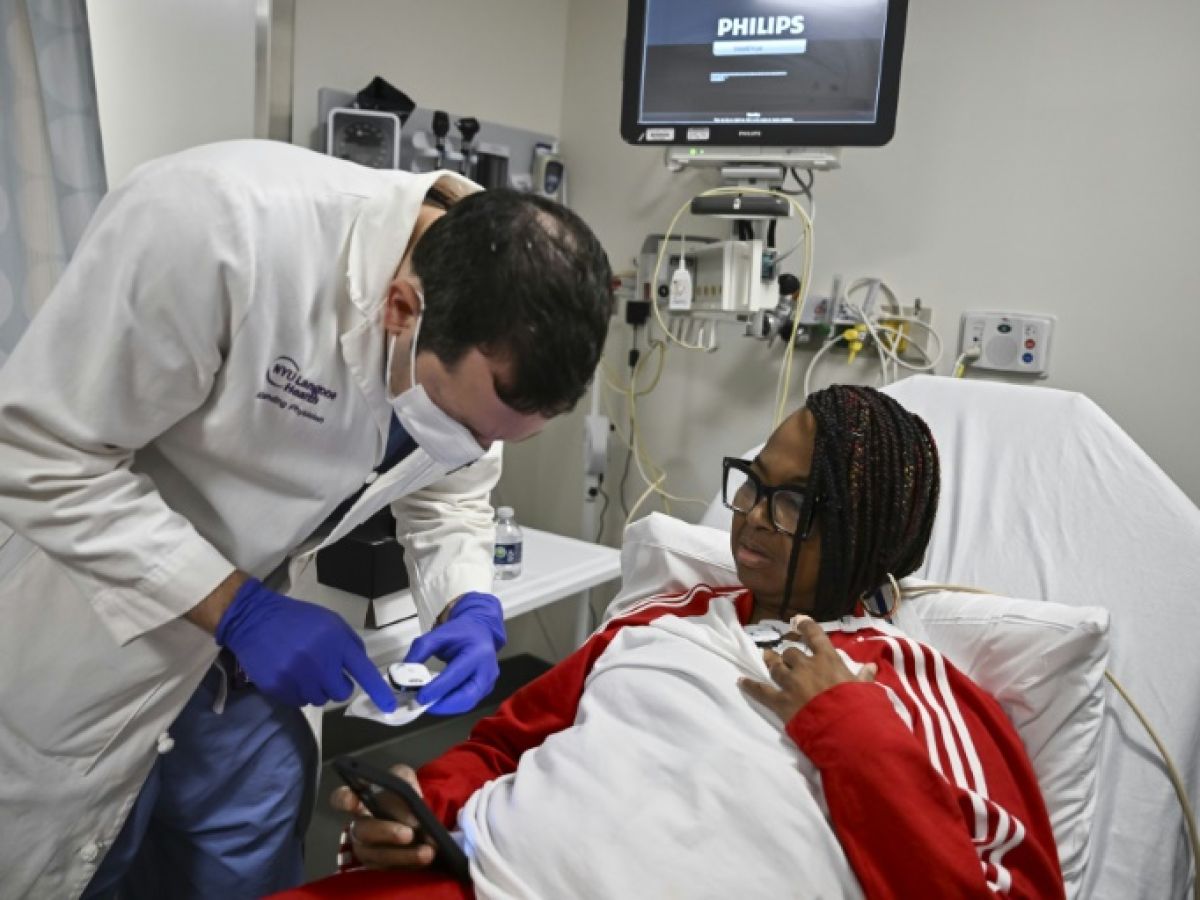"I'm over the moon": At 53, Towana Looney, an American woman whose only kidney was no longer functioning, has become the third living person in the world to benefit from a pig kidney, a practice that is still very experimental.
The patient, who has been under medical surveillance since her operation at the end of November at NYU Langone Hospital in New York, a pioneer in the field, spoke on Tuesday about her unique medical journey.
"I am lucky to have received this gift, a second chance at life," she said alongside the medical team during a press conference.
Ms Looney donated one of her kidneys to her mother in 1999 and had been on dialysis for eight years after a pregnancy complication damaged her remaining kidney.
This American woman living in Alabama, in the southern United States, had been waiting for a transplant since 2017 and could not find a compatible donor.
As her medical condition deteriorated, she was allowed to receive a genetically modified pig kidney.
"I'm full of energy, I have an appetite," she assured on Tuesday, continuing with a laugh: "and of course I can go to the toilet!"
This type of transplantation, called xenograft, between animals and humans, fuels the hope of responding to the chronic shortage of organ donations in a country where more than 100,000 patients are on the waiting list, including more than 90,000 for a kidney.
– Biological compatibility –

Three weeks after the operation, the patient presents "normal renal conditions," said surgeon Robert Montgomery, a member of the medical team.
NYU Langone Hospital in New York had already transplanted pig kidneys into two other living patients, Rick Slayman and Lisa Pisano, earlier this year. But they were seriously ill and died within weeks.
Towana Looney, who is in better overall health than those patients, received a slightly different kidney, Montgomery said.
Unlike the organs received by the first two people, which had only one genetic modification, the kidney that was transplanted to Ms. Looney has ten.
These modifications to the pig's DNA are intended to improve biological compatibility between the animal and the human and to prevent the organ from being immediately rejected by the recipient's body.
In those previous operations, doctors also transplanted the pig's thymus, a gland that plays an important role in the immune response. That was not the case with Ms. Looney.
In addition, a new combination of drugs was tested in this latest transplant.
The medical team announced Tuesday that the company Revivicor, which provided the transplanted kidney, would ask U.S. authorities for permission to begin clinical trials starting next year on the two types of kidneys developed.
Progress –
Long confined to science fiction, xenograft has recently benefited from progress made in gene editing and control of the immune system's response, limiting the risks of rejection.
"The next goal is to extend the life of these kidneys, particularly by donating them to healthier people who have a better chance of living longer," Montgomery said.
Several other transplants of this type have been carried out by his team in recent years, including the world first of a pig kidney transplant on a brain-dead patient in September 2021. The organ then functioned well for a few days.
Another American scientific team carried out the world's first transplant of a porcine heart into a living human in 2022. But the man, operated on by surgeons at the University of Maryland, died two months after his operation.
Scientists are encouraged by these operations because the transplanted organs were not immediately rejected by the patients' bodies.
"We have learned a lot from each transplant. We now know a lot about what the pig kidney can do," the surgeon said.
Towana Looney is expected to return home in three months, the medical team said.


